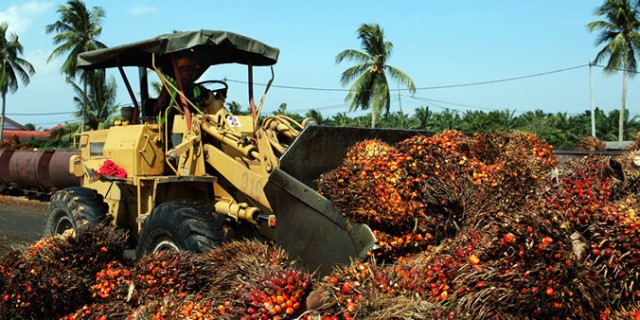Solidaridad West Africa (SWA), an international non-governmental organisation is collaborating with four state governments toward the attainment of self-sufficiency in palm oil production in Nigeria.
This would be achieved through the NGO’s National Initiatives for Sustainable and Climate-Smart Oil Palm Smallholders (NISCOPS) project.
The SWA said the states, “are among the largest producers of oil palm in the country and have the largest concentrations of independent smallholders and accounted for 89 per cent of the palm oil production in Nigeria, and therefore provide a viable avenue to trigger smallholders’ embrace of sustainable climate-smart agricultural practices as the norm in oil palm production among the smallholders.”
The SWA said its aim would be to enhance small-holder oil palm farmers’ access to finance, market, agro-inputs, climate-smart technologies and to increase productivity sustainably, build resilience to climate change and to reduce GHG emissions in Nigeria.
Speaking at a two-day inter-state level forum, which was organised recently in Calabar, Cross River State, with the theme: Building Inter-Sectoral Synergy for Oil Palm Sector Sustainability in Nigeria, Programme Manager for Oil Palm, SWA, Kene Onukwube, stated that the objectives of NISCOPS were the attainment of self-sufficiency in palm oil productivity, reduction in greenhouse gas (GHG) emission at oil milling level and improvement in income and livelihood of smallholder oil palm farmers.
The forum was attended by stakeholders that were drawn from the four states’ Ministry of Agriculture, Ministry of Environment, Ministry of Commerce and Industry, Oil Palm Growers Association of Nigeria, private investors in oil palm sector, Niger Delta Development Commission, and the state office of the Nigeria Incentive-Based Risk-Sharing System for Agricultural Lending, NIRSAL.
Onukwube, explained further that NISCOPS was designed to create synergy between different stakeholders in the oil palm sector towards sustainable and climate-smart oil palm production in Nigeria.
According to him, “NISCOPS is designed by SWA to ensure increased productivity of palm oil in an environmentally friendly way and also improve the livelihood of smallholder oil palm farmers.”
He said that: “The interest in NISCOPS from the four states is a good indication as the project is designed to transform oil palm production in the country with much concern to the environment during cultivation and processing. The project is meant to transform the oil palm landscape and the sector’s sustainably.”
One of the resource persons at the forum and a Lecturer and Research Consultant at Godfrey Okoye University, Enugu, Dr. Okoli Rowland, said the NISCOPS project by SWA came at the right time when global demand for the commodity is on the increase at $62 billion annually due to its multiplicity of use.
“Palm oil production has the capacity of engendering pro-poor development by lifting millions of rural poor out of poverty and contribute to the attainment of the Sustainable Development Goals (SDGs), as witnessed in Malaysia and Indonesia,” Rowland stated.
Source: THISDAY












